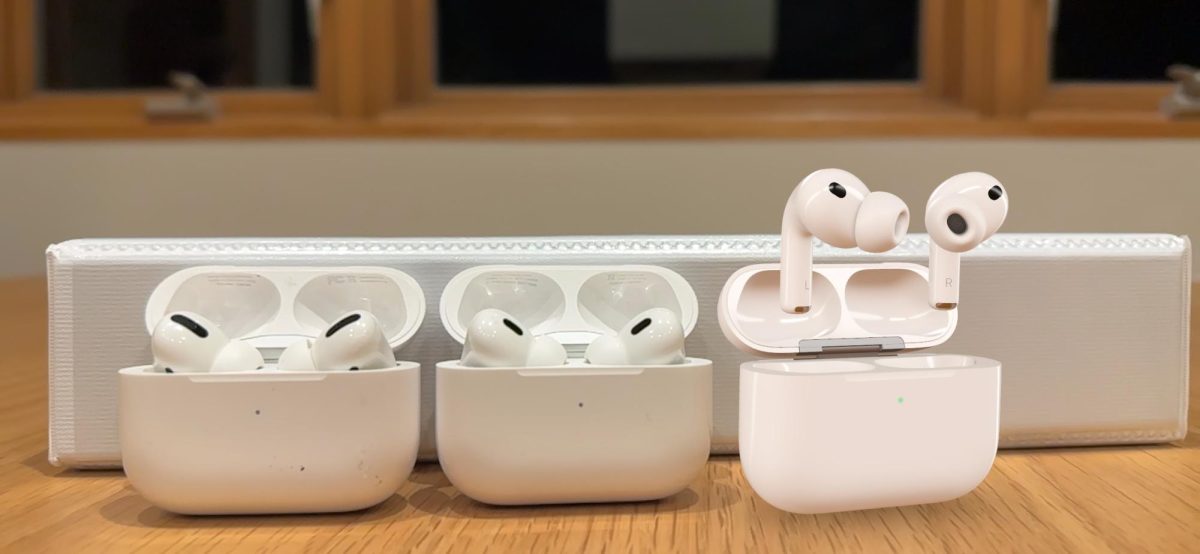As an elementary schooler, walking into school on a winter day signified the endless inevitable Christmas decorations lining the hallways and accessorizing the classrooms. Green and red streamers surrounded the paper cutouts of Christmas trees, and Santa Claus was without fail taped onto each teacher’s door. Choir classes prepared for their annual winter concert consisting of ‘Jingle Bells’, ‘White Christmas’, ‘Santa Claus is Coming to Town’, and, of course, the token ‘Oh Hanukkah.’’
As a Jewish kid growing up in a predominantly Christian school, I became weary of the repetitive questions regarding Hanukkah and its meaning, so I soon adopted the quick and easy “Hanukkah is basically just Christmas for Jews”. While this was my designated line for years, it is completely inaccurate, and I’ve been surprised to realize how many people still believe it.
The stereotype that Hanukkah is essentially ‘the Jewish Christmas’ was likely established in light of their similar dates. Frankly, this is one of the only true similarities the holidays share. Christmas, the celebration of Jesus Christ’s birth, falls on December 25. Similar to other Jewish holidays, Hanukkah’s date depends on the Hebrew Calendar. The first night of Hanukkah always falls on the 25th night of Kislev, which typically translates to somewhere between the end of the Gregorian Calendar’s November and December. This year, this happens to fall directly on Christmas Day.
Contrary to popular belief, Hanukkah is a relatively minor holiday within Judaism. Some significant Jewish holidays include Rosh Hashanah, Yom Kippur, and Passover.
Hanukkah is a Jewish holiday, or festival, lasting for eight days. The festival honors the Maccabean 165 BC rededication of the second temple of Jerusalem following its attempted desecration by the Syrians. Within the temple, the Jews had a limited supply of oil for light and lit a menorah expecting simply one night where the light would last. Miraculously, the light was maintained for eight consecutive nights. Over the eight nights of Hanukkah, a menorah is successively lit to commemorate this miracle. Thus, the festival is commonly nicknamed ‘The Festival of Lights’.
Lighting the candles on a Menorah, spinning a dreidel, and eating latkes are three of the many prevalent traditions tied to the holiday.
Giving and receiving presents is another popular Hanukkah tradition, similar to the notorious Christmas presents.
While it is difficult to find concrete evidence proving when this tradition began, some of the first acknowledged instances were during the 16th century referring to the giving of gelt (money, in Yiddish) to make or purchase clothes for underprivileged children. This is an example of tzedakah, the moral duty of charitable giving. Later on, in the 19th century, Eastern European Jews began gifting their own children gelt as a celebration of Hanukkah. This custom was brought to America as many of these Eastern European Jews immigrated. Over the years, this tradition has evolved into giving chocolate gelt, toys, and any other presents.
This marks another similarity between Hanukkah and Christmas, as gifts are both a staple for those celebrating the two holidays.
Speaking from experience, I’ve noticed that many Jews view Christmas with FOMO, for lack of better terms. I grew up jealous of my Christian friend’s trees, festivities, and of course the infamous Santa Claus. But as I’ve grown older and become more comfortable in my individuality, I’ve come to terms with the fact that I celebrate Hanukkah as opposed to Christmas.
Hanukkah is a beautiful festival, rich in cultural traditions from as early as thousands of years ago. It is important to recognize the differences between religious or cultural practices and traditions and remember not to make generalizations or stereotypes.
So the next time you consider wishing those you walk past on the streets a “Merry Christmas”, try wishing them a “Happy Holidays” instead. It might just heal their inner Jewish child in a sea of Christmas lights.














